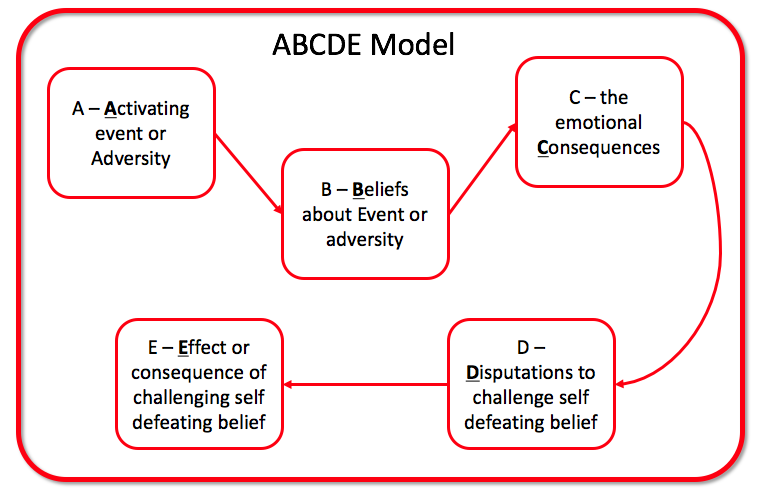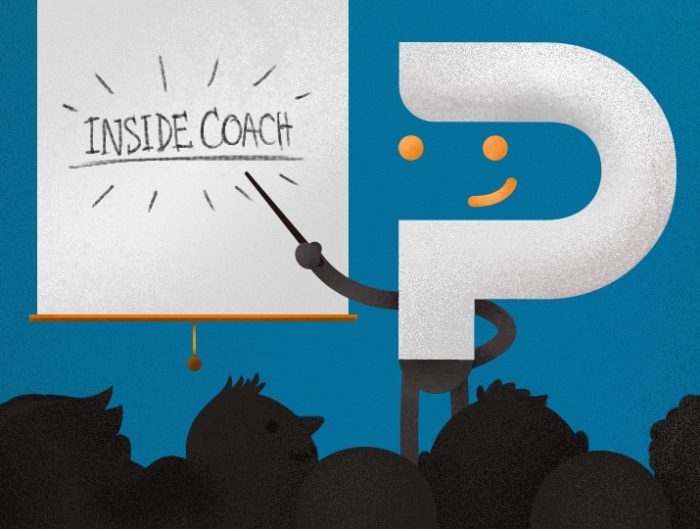As coaches, you understand the critical role that emotions play in an athlete’s performance. Anxiety, fear, anger, rage, and depression are just a few of the emotions that can wreak havoc on an athlete’s concentration and focus. These emotions, when left unchecked, can become gross distractions that hinder optimal performance. However, there’s a powerful tool that can help athletes perform in the presence of these emotions, and that tool is Rational Emotive Behavioral Therapy (REBT).
In a recent podcast by Dan Abrahams featuring Dr. James Munnik, a renowned high-performance mental coach who has worked with numerous athletes, we gained valuable insights into how REBT can transform an athlete’s emotional state and ultimately elevate their performance. In this blog post, we will explore how REBT therapy can help athletes turn negative emotions into a source of strength and resilience, using the ABCDE approach.
Understanding the Impact of Emotions on Performance
Emotions are an integral part of the human experience, and athletes are no exception. In the world of sports, high-stakes competitions and intense training can evoke a wide range of emotions. Anxiety can grip an athlete before a crucial match, fear can paralyze them in the face of a daunting opponent, and anger or rage can cloud their judgment during a game. All of these emotions have one thing in common: they can disrupt an athlete’s focus and hinder their ability to perform at their best.
The Power of REBT Therapy
Rational Emotive Behavioral Therapy (REBT) is a proven psychological approach that helps individuals manage their emotions and thought patterns effectively. Dr. Albert Ellis, the founder of REBT, believed that it’s not the events themselves that cause emotional distress, but rather our beliefs and interpretations of those events. REBT aims to identify and challenge irrational beliefs, replacing them with more rational, constructive ones.
Turning Negative Emotions into Performance Assets
REBT doesn’t seek to eliminate negative emotions but rather teaches athletes how to harness and transform them into more productive states of mind. For example:
- Instead of allowing anxiety to paralyze an athlete, REBT encourages them to reframe it as a concern. Concern can be a motivating force, driving an athlete to prepare more diligently and perform with heightened focus.
- REBT helps athletes channel their anger and rage into annoyance. Annoyance is a milder emotion that doesn’t cloud judgment but can serve as a source of determination and competitive edge.
Understanding the ABCDE of REBT

Image reference: Andi Roberts at masterfacilitator.com/
We know – these are a lot of letters. But bear with us! REBT employs a structured approach to address emotional challenges and promote more rational thinking and effective behavior. The ABCDE model breaks down this process into five key components:
A: Adversity – Identifying the Trigger:
The journey begins with recognizing the Adversity, which is any event that happens right before an athlete experiences an emotion such as anxiety, fear, anger, or depression. This step involves pinpointing the specific situation or circumstance that initiates the emotional response.
B: Irrational Belief – The Story We Tell Ourselves:
Once the Adversity is identified, athletes examine their Irrational Beliefs about the event (Point B). These beliefs are essentially the stories they tell themselves about what has happened. REBT encourages athletes to confront and challenge these irrational beliefs.
C: The Emotional and Behavioral Consequences – The Result of Belief:
Irrational Beliefs (Point B) lead to Emotional and Behavioral Consequences (Point C). These consequences can manifest as external behaviors, such as lashing out at someone, or internal emotions, like heightened anxiety or sadness. Understanding these consequences is crucial in the REBT process.
D: Disputes – Challenging Irrational Beliefs:
The next step involves Disputing or challenging the irrational beliefs (IBs) identified at Point B. In this phase, a skilled practitioner, like Dr. James Munnik, engages with athletes dynamically, questioning and examining their views. The goal is to encourage athletes to confront and challenge their irrational beliefs, paving the way for more rational thinking.
E: New Effect – A Positive Transformation:
As a result of challenging their irrational beliefs, athletes can experience a New Effect (Point E). This transformation promotes more effective emotions and behaviors, leading to a more rational, reasonable, and logical perspective on the original event. In essence, athletes gain emotional resilience and the ability to navigate challenging situations with greater composure and focus.
The Podcast Insights
In the podcast featuring Dr. James Munnik, we learned how he has effectively used REBT techniques to help athletes master their emotions and optimize their performance. Dr. Munnik’s expertise and experience as a high-performance mental coach have made him a valuable resource for athletes seeking to gain a mental edge in their respective sports. Listen to the full thing here.
As coaches, you have a unique opportunity to introduce your athletes to the benefits of Rational Emotive Behavioral Therapy (REBT). By helping them understand and manage their emotions effectively, you can empower them to turn negative emotions into sources of strength and resilience. REBT has the potential to revolutionize the way athletes approach their emotional challenges, ultimately enhancing their performance on the field, court, track, or simply, in life.

 FRA
FRA































